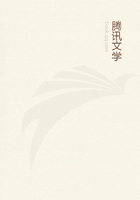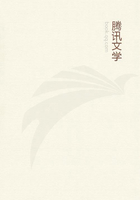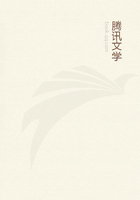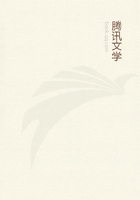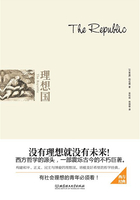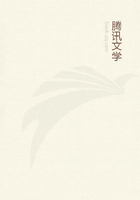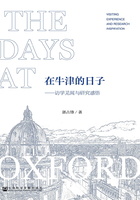WASHINGTON, SUNDAY, MARCH 3, 1861
[During the struggle over the appointments of LINCOLN's Cabinet, the President-elect spoke as follows:]
Gentlemen, it is evident that some one must take the responsibility of these appointments, and I will do it. My Cabinet is completed.
The positions are not definitely assigned, and will not be until I announce them privately to the gentlemen whom I have selected as my Constitutional advisers.
FIRST INAUGURAL ADDRESS, MARCH 4, 1861
FELLOW-CITIZENS OF THE UNITED STATES:--In compliance with a custom as old as the Government itself, I appear before you to address you briefly, and to take in your presence the oath prescribed by the Constitution of the United States to be taken by the President "before he enters on the execution of his office."
I do not consider it necessary at present for me to discuss those matters of administration about which there is no special anxiety or excitement.
Apprehension seems to exist among the people of the Southern States that by the accession of a Republican administration their property and their peace and personal security are to be endangered. There has never been any reasonable cause for such apprehension. Indeed, the most ample evidence to the contrary has all the while existed and been open to their inspection. It is found in near1y all the published speeches of him who now addresses you. I do but quote from one of those speeches when I declare that "I have no purpose, directly or indirectly, to interfere with the institution of slavery in the States where it exists. I believe I have no lawful right to do so, and I have no inclination to do so."
Those who nominated and elected me did so with full knowledge that I had made this and many similar declarations, and had never recanted them. And, more than this, they placed in the platform for my acceptance, and as a law to themselves and to me, the clear and emphatic resolution which I now read:
"Resolved, That the maintenance inviolate of the rights of the States, and especially the right of each State to order and control its own domestic institutions according to its own judgment exclusively, is essential to that balance of power on which the perfection and endurance of our political fabric depend, and we denounce the lawless invasion by armed force of the soil of any State or Territory, no matter under what pretext, as amongst the gravest of crimes."
I now reiterate these sentiments; and, in doing so, I only press upon the public attention the most conclusive evidence of which the case is susceptible, that the property, peace, and security of no section are to be in any wise endangered by the now incoming administration.
I add, too, that all the protection which, consistently with the Constitution and the laws, can be given, will be cheerfully given to all the States when lawfully demanded, for whatever cause--as cheerfully to one section as to another.
There is much controversy about the delivering up of fugitives from service or labor. The clause I now read is as plainly written in the Constitution as any other of its provisions:
"No person held to service or labor in one State, under the laws thereof, escaping into another, shall in consequence of any law or regulation therein be discharged from such service or labor, but shall be delivered up on claim of the party to whom such service or labor may be due."
It is scarcely questioned that this provision was intended by those who made it for the reclaiming of what we call fugitive slaves; and the intention of the lawgiver is the law. All members of Congress swear their support to the whole Constitution--to this provision as much as to any other. To the proposition, then, that slaves whose cases come within the terms of this clause "shall be delivered up," their oaths are unanimous. Now, if they would make the effort in good temper, could they not with nearly equal unanimity frame and pass a law by means of which to keep good that unanimous oath?
There is some difference of opinion whether this clause should be enforced by national or by State authority; but surely that difference is not a very material one. If the slave is to be surrendered, it can be of but little consequence to him or to others by which authority it is done. And should any one in any case be content that his oath shall go unkept on a merely unsubstantial controversy as to how it shall be kept?
Again, in any law upon this subject, ought not all the safeguards of liberty known in civilized and humane jurisprudence to be introduced, so that a free man be not, in any case, surrendered as a slave? And might it not be well at the same time to provide by law for the enforcement of that clause in the Constitution which guarantees that "the citizens of each State shall be entitled to all privileges and immunities of citizens in the several States"?
I take the official oath to-day with no mental reservations, and with no purpose to construe the Constitution or laws by any hypercritical rules. And, while I do not choose now to specify particular acts of Congress as proper to be enforced, I do suggest that it will be much safer for all, both in official and private stations, to conform to and abide by all those acts which stand unrepealed, than to violate any of them, trusting to find impunity in having them held to be unconstitutional.
It is seventy-two years since the first inauguration of a President under our national Constitution. During that period fifteen different and greatly distinguished citizens have, in succession, administered the executive branch of the Government. They have conducted it through many perils, and generally with great success.
Yet, with all this scope of precedent, I now enter upon the same task for the brief constitutional term of four years under great and peculiar difficulty. A disruption of the Federal Union, heretofore only menaced, is now formidably attempted.

